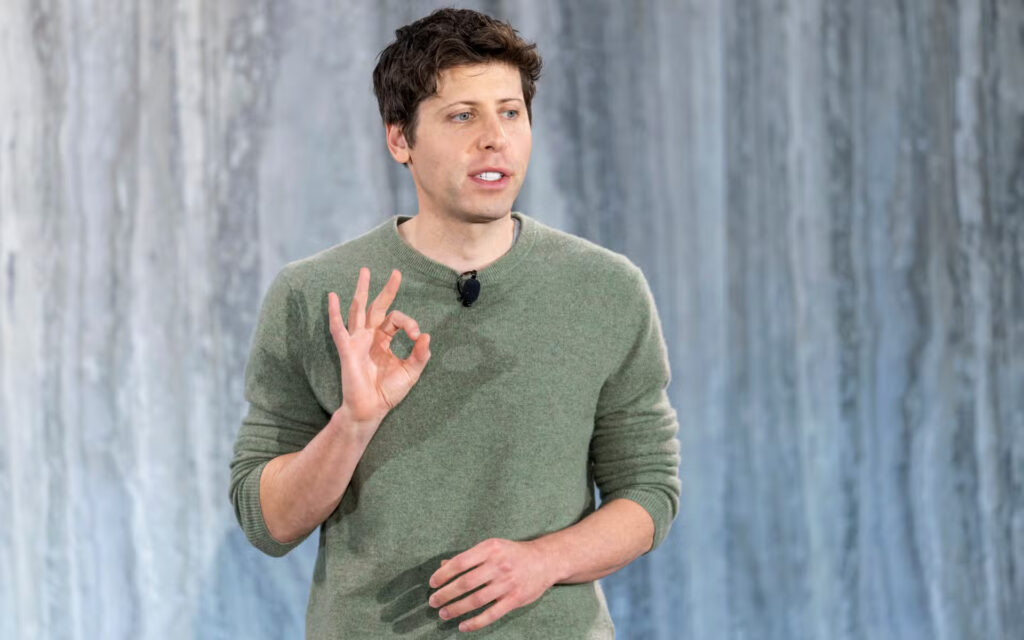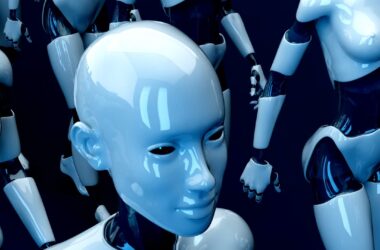This week in AI has seen significant developments shaping the future of work, creative arts, and content verification.
It is Thursday, indeed! A day you’ve been looking forward to. And as always, we’re here to bring you more exciting news from the fascinating field of artificial intelligence developments. Get ready to dive into the tech world’s latest and greatest happenings!
Today’s topic includes:
- OpenAI’s Rollercoaster Week: Recent Corporate Updates in a Nutshell
- AI Could Replace 4 Million Jobs in South Korea, BOK Study Says
- DeepMind and YouTube Release Lyria, a Gen-AI Model for Music, and Dream Track to Build AI Tunes
- Amazon Launches Free AI Classes in Bid to Win Talent Arms Race
- Google Is Embedding Inaudible Watermarks Right Into Its AI-Generated Music
- Use of AI Could Create a Four-Day Week for Almost One-Third of Workers
OpenAI’s Rollercoaster Week: Recent Corporate Updates in a Nutshell
The past week at OpenAI has been nothing short of a corporate rollercoaster, marked by surprising turns and high-profile movements. The chaotic events are broken down as follows:
The week began with a major shakeup as the board of OpenAI decided to fire its CEO, Sam Altman. This decision sent ripples across the tech industry and was widely covered by news outlets, sparking discussions about the company’s future direction.

Following Altman’s dismissal, several key employees at OpenAI resigned. These departures indicated a significant shift in the organization’s internal dynamics and were viewed as a direct response to the board’s decision.
In a move that surprised many, Microsoft hired the recently ousted Sam Altman and another high-ranking OpenAI employee. This unexpected development highlighted the tech industry’s competitive nature, especially in AI.
In today’s latest news, OpenAI has reportedly offered to bring Sam Altman back as CEO. This newest twist suggests a potential reversal of the board’s earlier decision and points to ongoing strategic reevaluations within the company.
Throughout this eventful week, the AI community has been abuzz with speculation and analysis, underscoring the high-stakes environment of AI research and development. It shows how fast things can change in the tech world and how big decisions can change things. People are now waiting to see what will happen next with OpenAI and its leaders.
AI Could Replace 4 Million Jobs in South Korea, BOK Study Says
A recent study by the Bank of Korea (BOK) forecasts that AI could replace up to 4 million jobs in South Korea over the next 20 years. The study emphasizes that AI’s impact will be most felt in sectors with routine tasks, such as manufacturing and administrative support while creating new opportunities in fields requiring creativity and emotional intelligence.
The report urges a proactive approach, emphasizing the need for reskilling and education programs to prepare the workforce for this technological shift. The South Korean government and industries are advised to collaborate on strategies to lessen the workforce impact, focusing on upskilling and adapting to the evolving job landscape. This challenge also presents an opportunity for growth and innovation in the job market, provided there is a readiness to adapt to these changes.
DeepMind and YouTube Release Lyria, a Gen-AI Model for Music, and Dream Track to Build AI Tunes
Google’s DeepMind and YouTube have introduced Lyria, a new AI music tool, and Dream Track for creating AI songs. Lyria advances Google’s earlier AI music efforts, allowing users to generate short music pieces for YouTube Shorts. Dream Track uses chosen artists and topics to create 30-second songs, and Music AI helps turn simple hums into full compositions.
The launch coincides with ongoing debates about AI’s role in the arts. These tools aim to produce realistic-sounding music and aid musicians, although AI music can sometimes sound unusual over time due to its complexity.
Initially available to select users, Dream Track is being tested with artists’ input, while Music AI tools are slated for release later. Other companies are also exploring AI in music, indicating a growing trend in the industry.
Amazon Launches Free AI Classes in Bid to Win Talent Arms Race
Amazon is starting a new program called “AI Ready” to teach millions of people about AI. They want to train at least 2 million people by 2025 on AI skills, from basic to advanced, including how to use AI like ChatGPT. This program is Amazon’s way to compete with companies like Microsoft and Google for skilled AI workers.
The training has 8 online courses about AI for people who work in tech and similar jobs. These courses are free for everyone, not just Amazon workers, and you can find them on Amazon’s learning website. They are for both beginners and people who already know some AI. Amazon says AI is very important, and many people need to learn it to use it well. Companies in many fields are starting to use AI for things like marketing and writing code. But, figuring out how AI will change jobs and what new skills people need is still early and hard.
The latest AI courses from Amazon also cover their own AI tools, such as CodeWhisperer and Bedrock AI. They also collaborate with a nonprofit called Code.org to teach kids about AI and offer scholarships for AI courses.
Google Is Embedding Inaudible Watermarks Right Into Its AI-Generated Music
Like songs from YouTube’s new features, Google’s AI music made with DeepMind’s Lyria model will have hidden watermarks using SynthID. These watermarks can’t be heard but show the music was made by AI. DeepMind says this won’t change how the music sounds and works, even if it is changed, like being compressed or adding noise.
Watermarks are important for AI safety. Even the U.S. President’s executive order on AI discusses watermarking AI. It helps tell if something is real or made by AI, but it could be better.
DeepMind’s SynthID makes a special picture from the music that shows the different sounds over time. It’s a new way to watermark.
Just a while ago, Google also started using SynthID for AI-made pictures. It works even if you change the picture a bit, but it might only work if you change it a little.
Use of AI Could Create a Four-Day Week for Almost One-Third of Workers
A study by the think tank Autonomy suggests that AI could help many workers in Britain and the US shift to a four-day workweek by 2033. The study found that using AI big language models like ChatGPT could make work more efficient. This means 28% of workers, about 8.8 million in Britain and 35 million in the US, could work 32 hours a week instead of 40 without losing pay or performance.
Mark Takano, a US Congressman, thinks the government needs to ensure everyone benefits from these changes in our work. Autonomy suggests that both countries could lead the world in using AI at work. They say it’s a big chance to improve life for millions. They also want a strong plan for AI and automation, where unions, businesses, and tech experts work together to ensure these changes also help workers.
What’s Next?
Wrapping up this week’s AI Digest, we’ve explored everything from OpenAI’s drastic corporate changes to AI’s replacement of regular jobs.
Stay tuned for the latest advancements in AI as we bring you fresh and exciting news every week!




